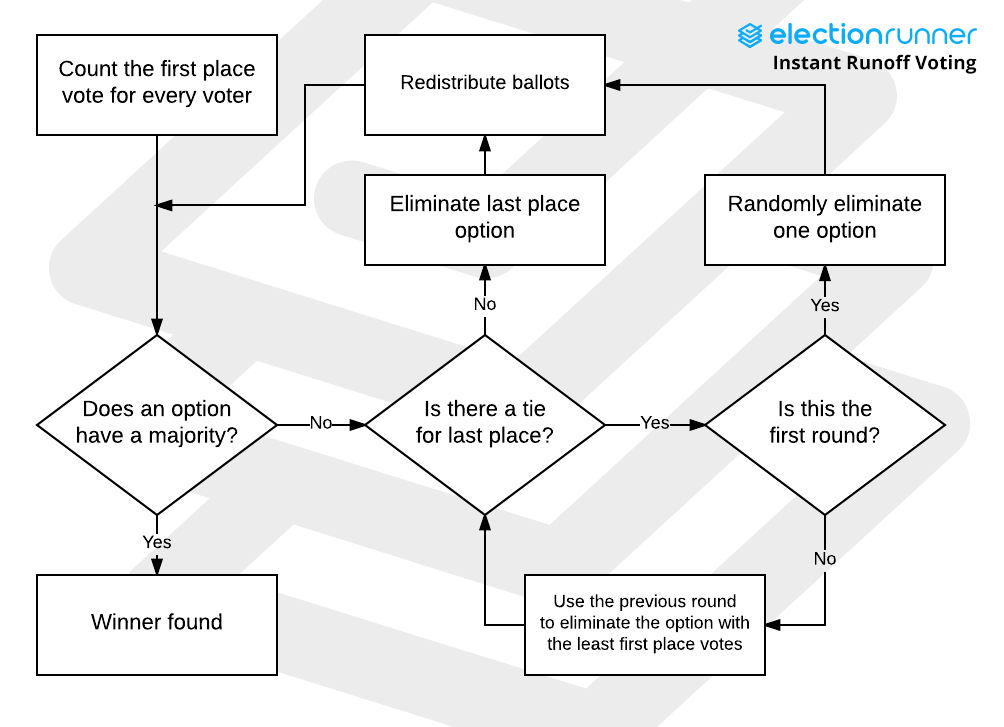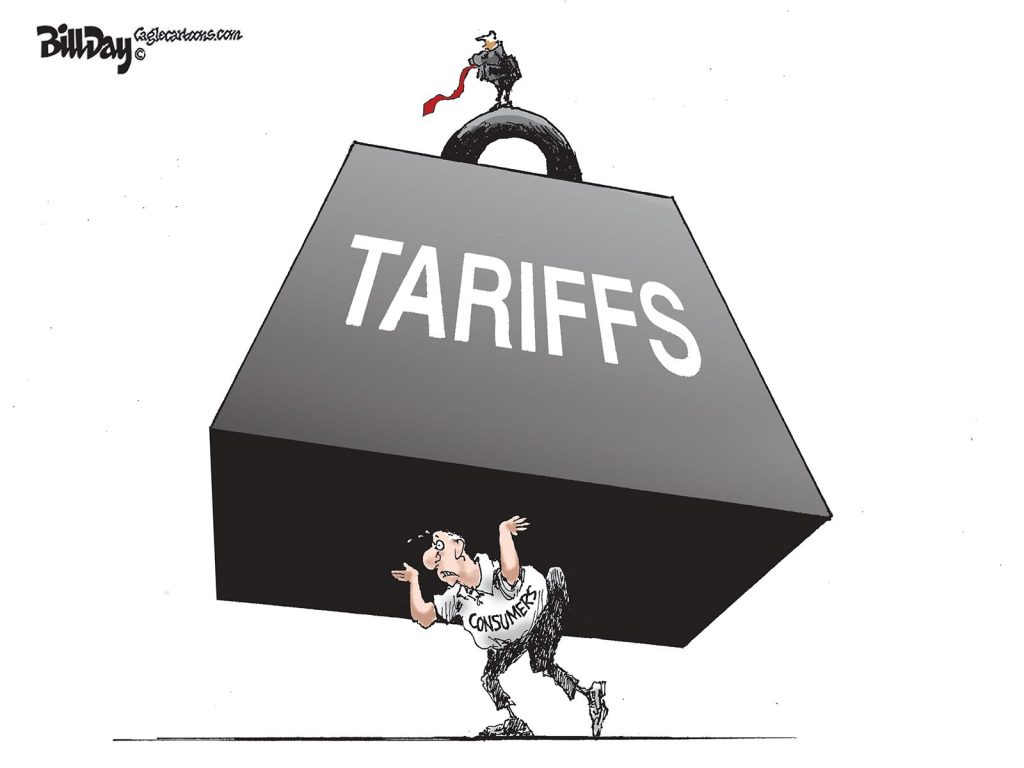There are decisions that divide elected officials between politicians and statesmen and stateswomen.
Instant Runoff Voting, or Ranked Choice Voting, is one of those decisions. It was approved eight years ago by city voters but some people, mainly at the Election Commission, have been slow walking it for years.
There are some City Council members who see their political futures as tied to the current system with runoffs with dismal turnouts – about 6% in 2015 – rather than a modern system that selects winners on election night.
Finally, the new administrator of the Shelby County Election Commission is ready to set an IRV system in place, and that’s good news. The lack of technological savvy was a big reason that the former Election Commission administrator was seen largely as a failure.
Big Savings
With this IRV system, voters would select their first choice, their second choice, and their third choice for an office like City Council. If no candidate has 50 percent of the vote, the second place votes are counted to eliminate the person with the fewest votes on the way to finding the person named most often first, second, or third (read below).
The new administrator of the Election Commission has a deeper understanding of the technology that hopefully will usher in an era in which it elections once again have high voters confidence.
In addition, there is of course the savings that come from a switch to IRV: about $250,000 per runoff election.
There are those who will creates smokescreens with legal arguments or justifications like more elections are a good thing for democracy. Most of them are candidates who won runoff elections when fewer voters turned out.
Here’s Hoping
The IRV system could be used as early as 2019 for City Council elections, but that will require some policy decisions by Council members. One of those decisions is whether IRV will apply to super districts or just the single-member districts. We’re hard-pressed to understand why super districts should be treated any differently.
Stay tuned. We predict some last-minute machinations to push IRV off into the future by claiming that a major voter education program needs to take place first. Of course, we could begin that program now, and such a program will cost a lot less than another expensive runoff in a city with too little money already.
Here’s our post from September 25, 2007: IRV Gives Election Results ASAP —
It’s not often that Memphis has the chance to be a trend setter, but one of the least understood proposals before the Memphis Charter Commission would give us just such a chance.
It’s Instant Runoff Voting, a proposal submitted to the Commission by Shelby County Commissioner Steve Mulroy, whose solidly liberal credentials should allay concerns that IRV is a plot to give white voters more clout at the polls.
He’d be hard-pressed to have more graphic examples of the wisdom of IRV than this year’s city elections. After all, it’s likely that a number of City Council races will require costly runoff elections, where voters will back into selecting a winner rather than voting for their hopes and dreams for the future.
Eliminating Spoilers
Sadly, there’s no runoff for the Memphis mayor and Council super-districts, meaning that there’s the real prospect that some elected officials – notably the mayor – will take office with more people voting against the winner than in favor of him or her.
For the sake of example, consider the race for District 6 Council race where yet another Ford progeny, Edmund Ford Jr., is running for the seat left open by his father in the wake of his federal indictment. His major opponents are Reginald Milton, Ed Vaughn, James Catchings and a few assorted others.
It’s likely that no candidate will get a majority of the vote, and as a result, a follow-up runoff costing Memphis taxpayers tens of thousands of dollars will be held. There’s also the prospect that the turnout will be much smaller.
Cheaper and Immediate
It could be different. It could be cheaper, more efficient and the results could be immediate.
That’s the beauty of Instant Runoff Voting. Memphis voters would no longer have to vote twice to get a winner, because on election night, a majority winner would be proclaimed.
Here’s how it works:
When voters go to the polls, they vote for candidates in order of their preference. The pick their first choice, their second choice, their third choice, and so on.
If a candidate wins a majority, that person obviously is the winner. If there is no candidate with a majority, the rankings of the other candidates are used to declare a winner.
All ballots are recounted, and the candidate receiving the least number of first place votes is eliminated. The ballots are counted again, and voters who chose the eliminated candidate now have their votes counted for the second-ranked candidate. The weakest candidates are progressively eliminated and votes redistributed until a single candidate has a majority of the votes.
In this way, IRV offers the chance for better voter choice and wider voter participation in selecting the winner. According to proponents like Commissioner Mulroy, IRV allows voters to vote for their favorite candidate without the fear that they are helping to elect their least favorite candidate. Best of all, the ultimate winner actually has the real support of a majority of voters.
No Longer A Novelty
For four years, San Francisco has been using IRV, and the response from the public has been highly supportive. Soon, Oakland and Minneapolis will add the instant runoff to its election process after voters overwhelmingly approved it at referendum.
North Carolina is beginning to use it in certain judicial races, and Arkansas, South Carolina and Louisiana use the ranked ballot for overseas and military voters. Meanwhile, Ireland uses it in its president’s election, London in its mayor’s election and Australia for its House of Representatives.
Support of IRV has also come from one of the most unexpected places – political parties. With instant runoffs, parties can choose to nominate multiple candidates without worrying about watering down their voter support.
More Than Saving Money
Now, the liberal vote can be split between multiple candidates, allowing a conservative candidate to win. But IRV allows voters to rank all of their candidates so that if a district’s dominant political philosophy does not fall victim to spoilers in the race who pull away enough votes from one major candidate to elect the other.
For example, in New Mexico, Green Party and Democratic Party candidates split liberal voters, allowing Republicans to be elected in districts in which they clearly are out of step.
Until Shelby County passes a vote-by-mail system, Instant Runoff Voting is the best idea to come along in years, because not only does it save significant public money, it has actually been credited with reducing negative campaigning. Because candidates aren’t just campaigning for people’s votes, but also for second and third rankings, which means that they are less likely to vilify opponents whose supporters can mean the difference between victory or defeat.
**
Join us at the Smart City Memphis Facebook page for daily articles, reports, and commentaries relevant to Memphis.





